On this day in 2008, the still-new iPhone gained an App Store, destroyed selling software in boxes, made apps cheaper — and is now mired on controversy.
Software used to cost hundreds of dollars and if you didn't pick it up at a retail store, you had to wait to be posted to you got it posted to you. And in either case, it came in a sometimes huge box, plus you then had to schlep through feeding disks or CDs into your machine.
That box size would be down to the manuals and we can lament the demise of a really well-written manual. But otherwise the change the App Store brought is so night and day, so clearly the right thing to have happened, that anything before it seems quaintly historic.
Plus even if you have never used the iPhone's App Store, you naturally know how it works. That's because all software, for all devices, is sold and delivered in the same way.
You find it online, you pay online, it is downloaded straight to your device and you can use it right away.
It's not as if there weren't any downloads before the App Store, but this is another case of Apple coming along late and doing something the way nobody else did. And doing something the way everyone immediately copied.
If it's hard now to believe just how patiently Steve Jobs had to explain all of this when introducing the App Store in 2008, it's probably harder to believe how much he was originally against the idea.
But then it's easier to believe just how much the App Store has become controversial since its launch.
Ask a user and they might like the store, or they might not, but they probably don't even think about it. Yet ask App Store competitors and this Apple service must be destroyed — and today it looks like that could just happen.
No need for an App Store
The original iPhone shipped with 15 apps and its front screen tantalized with clear space for more. Steve Jobs never specified what other apps could go on that iPhone home screen, but he did very adamantly specify what couldn't.
It could not be apps in the way that the 15 stock Apple ones were made and installed. There could not be third-party apps like that, and the way he span this, developers should be grateful.
"The full Safari engine is inside of iPhone," Jobs explained at WWDC in 2007. "And so, you can write amazing Web 2.0 and Ajax apps that look exactly and behave exactly like apps on the iPhone."
"And these apps can integrate perfectly with iPhone services," he continued. "They can make a call, they can send an email, they can look up a location on Google Maps."
"And guess what?" said Jobs in what he seemed to expect would get applause. "There's no SDK [Software Development Kit]that you need!"
Uh-huh, said the crowd at WWDC. And maybe that helped.
For seemingly within Apple itself, there was always a huge desire for an App Store of some kind.
So with developers outside Apple asking for it as much as developers inside, something had to break — and this time, it was Jobs.
We may never know the full extent of discussions for and against an app store inside Apple, but it is clear that an internal email from OS X chief engineer Bertrand Serlet was the tipping point.
Bertrand Serlet to Steve Jobs: "Fine, let's enable Cocoa Touch apps"
— Internal Tech Emails (@TechEmails) June 3, 2021
October 2, 2007 pic.twitter.com/9aTxmjgkRS
There was also clearly strong pressure from Scott Forstall, a favorite of Jobs' and later Senior Vice President of iOS. At some point in 2007, he met with the developers of the Pandora music app and encouraged them to make an iPhone app — by jailbreaking a phone.
Jailbreaking is the working around of just about every iOS security protocol in order to run apps that Apple either doesn't know about, or definitely doesn't approve of. Apple has been as stringently against jailbreaking as it has about everything to do with the App Store, but here was an executive recommending it.
Pandora's chief technology officer, Tom Conrad, ">revealed this conversation 14 years after the fact. He says he and Pandora executive Tim Westergren were invited to lunch by Forstall, and the lunch took place away from Apple.
"What, if anything, can we do at Pandora to get ready for the next generation of iPhone that includes an App Store and native APIs?" Conrad says he asked.
"Forstall said," reports Conrad, "[that] it wouldn't be a waste of your time to jailbreak some iPhones and use the kind of back door toolkits that were being distributed by other people to build a native Pandora app while we get our act together at Apple on something more formal."
It seems as if Jobs wanted to keep the iPhone a sealed device in software, just as it is in hardware. You can't replace the battery, which was a controversial decision at the time, so you also can't replace or add to the built-in apps.
This does all fit with Jobs seeing computers as consumer devices that you just plug in, or charge up, and use. But whether he was the only person who wanted this, he was definitely the only person who could change it.
So his one-line reply to Serlet on October 2, 2007, is where the App Store began. "Sure, as long as we can roll it out at Macworld on Jan 15, 2008," he wrote.
Macworld on Jan 15, 2008
"You've spent two weeks or maybe a little bit longer writing this amazing app, and what is your dream?" Jobs asked developers from the Macworld stage. "Your dream is to get it in front of every iPhone user. And hopefully they love it and buy it, right?
"That's not possible today," he continued. "Most developers don't have those kinds of resources. Even the big developers would have a hard time getting their app in front of every iPhone user."
"Well, we're going to solve that problem for every developer, big to small," said Jobs, "and the way we're going to do it is what we call the App Store."
It's so hard to watch that presentation now and really understand how big a deal it was, how very different app buying used to be. It's also a bit tedious as Jobs explains the buttons in the App Store app.
"It's got the five buttons across the bottom," he said, pointing at an image of them all. "So we have a featured section which is the ones we're featuring."
He explained how to find an app, how to install it, and then what happens when there is an upgrade. All of this was shown on an iPhone and Jobs said that was how most people were going to use apps.
But he did then use a word Apple has come to distance itself from.
"We've also built a section into iTunes where you can peruse all the apps as well," he said. "And you can download them right to your computer, a PC or a Mac and sideload them right into your iPhone as well."
The word is sideload, not iTunes. Although iTunes would later go away just as thoroughly as Apple wishes sideloading would.
Let's talk money
Having laid out how it would all work for users, Jobs addressed the issue of what it would be like — and what it would cost — behind the scenes.
"Now, developers are going to ask well, this is great, but what's the deal? Right? What's the business deal?" he said. "We think we've got a great business deal for our developers."
The deal was the now familiar — and now heavily criticized — one where Apple takes a 30% cut of all sales. This was not remotely criticized at the time, it instead got applause.
That would be because in 2007, developers chiefly sold software through retail stores. And any of them would tell you that after boxing, shipping, and the retailer's cut, you would be lucky to see 30% of the retail price yourself.
There was more applause as Jobs listed how "there are no credit card fees for the developer... no hosting fees," and explained "we take care of all of that."
And then the biggest applause was to do with free apps.
"We talk about the 70/30 revenue split," said Jobs, "but the developer gets to pick the price and you know what price a lot of developers are going to pick? Free, right?"
"So when a developer wants to distribute their app for free, there is no charge for free apps at all," he continued, having to pause for the applause to die down. "There is no charge to the user. And there's no charge to the developer."
Jobs explained that all of this was because "the developer and us have the same exact interest which is to get as many apps out in front of as many iPhone users as possible."
Without explaining what would become the App Store review process, Jobs did throw in that there would be limitations. "Of course!" he said. "There are going to be some apps that we're not going to distribute."
And just like that, the first criticism of the App Store began.
App Store review and reviews
The App Store — and features like push email — would come to the iPhone with the release of iPhone OS 2.0 on July 11, 2008. The App Store has been an unimaginable success, and it was so immediately.
Apple opened the store with over 500 apps on day one — more than twice what the company reportedly expected.
"The reaction has been so strong," Jobs told USA Today.. "So many developers responded."
Jobs is a man who launched the Mac, the iPad, and the single most successful product of all time, the iPhone. But still, he told the publication then that the App Store "is the biggest launch of my career."
You can be a hit with developers and yet still not sell many apps, but after a month, it was clear that everyone loved the App Store.
"[The] App Store is much larger than we ever imagined," Jobs told the Wall Street Journal in an interview from early August 2008. "iTunes has been out for over five years. In 30 days, users downloaded 30% as many apps as everybody in the world downloaded songs from iTunes."
"We didn't expect it to be this big," said Jobs. "The mobile industry's never seen anything like this. To be honest, neither has the computer industry."
"Sixty million downloaded applications in the first 30 days," he continued. "30% as big as iTunes song downloads during the last 30 days, this is off the charts."
Incidents and accidents
According to Walter Isaacson's biography of Steve Jobs, the first months and even years of the App Store highlighted problems, though. Apple was being a gatekeeper, deciding what people could use on their iPhones — and sometimes it was overstepping the mark.
For instance, Apple rejected an app that was built around political cartoonist Mark Fiore's work. The App Store team determined that the cartoons were defamation against the then-Bush Administration.
But in 2010, Fiore won a Pulitzer Prize for his work and Apple responded to pressure by allowing the app.
"We're guilty of making mis-takes," said Jobs at the time. "We're doing the best we can, we're learning as fast as we can — but we thought this rule made sense."
Around then, Jobs also replied to a user's email about the issue and specifically about pornography.
"We believe we have a moral responsibility to keep porn off the iPhone," he replied in part. "Folks who want porn can buy an Android."
But speaking of porn, in 2013 Apple removed a photography app that had been on the App Store for over 16 months. The 500px app, said to have by then been downloaded over a million times, was pulled because of its existing photo search function.
An App Store reviewer looking at a submitted update to the app decided that it was too easy for people to use the search feature to find nude photos.
It was subsequently restored and is still available today.
The milestone 10th anniversary
By the App Store's tenth birthday in 2018, Steve Jobs was gone, but the store continued to grow enormously.
"In its first decade, the App Store has surpassed all of our wildest expectations — from the innovative apps that developers have dreamed up, to the way customers have made apps part of their daily lives — and this is just the beginning," said Apple's Phil Schiller at the time. "We could not be more proud of what developers have created and what the next 10 years have in store."
However, what the next 8 years have shown so far is an enormous rise in criticism of the App Store. Some of it is a continued and legitimate concern over Apple's gatekeeper position.
Some of it is from other firms variously championing the benefits of choice, and decrying Apple's "tax" on developers. The greatest proponents of this criticism are companies who want to make app store money themselves, including Meta whose fees are even larger.
Then there is Epic Games, which is a giant company set on making you believe it is an underdog that is willing to fight for other underdogs over unexpected unfairness in the App Store rules. Apple "must be stopped," said the games firm's CEO, Tim Sweeney.
There is unfairness, there are mistakes, it is an issue that the App Store is the only official way to get apps onto the iPhone. But Epic Games tried to make it look as if it were reacting to a particularly erroneous App Store rejection, then revealed it had been planning this fight for months.
The fight went to court, where Apple mostly won and Epic Games mostly lost. But this is America, the case is going to go through appeals for a very long time yet.
App Store changes coming
There's definitely an argument that Apple owning and running the App Store is anticompetitive, although Apple denies that since users can go buy an Android phone if they want. Plus Apple appears to bow before government pressure, particularly from China, and will remove apps en masse when told.
There's also a case being made that the App Store violates US antitrust laws, and there is one surprising proponent of that. Microsoft.
In February 2022, Microsoft contributed an amicus brief supporting Epic Games for the games company's appeal, and said that "the potential antitrust issues stretch far beyond gaming."
Basically, Microsoft argued that if Apple isn't stopped now, its antitrust behavior will just get worse.
This is from the firm that went through years of well-documented antitrust issues with Internet Explorer. And the firm that has complete control of its Xbox console ecosystem, exactly as Apple does with the iOS App Store.
It's easy to forget that there are some legitimate concerns about the App Store when the criticisms come from such interested parties. But whatever the strength of the argument, the accusation of antitrust practices is now being levied against Apple from far outside the technology industry.
For instance, in January 2022, the attorneys general for 34 states and the District of Columbia, sided with Epic Games.
"Apple's conduct has harmed and is harming mobile app-developers and millions of citizens," the states said in an open letter. "Meanwhile, Apple continues to monopolize app distribution and in-app payment solutions for iPhones, stifle competition, and amass supracompetitive profits within the almost trillion-dollar-a-year smartphone industry."
Worldwide dissent
First technology rivals argued against the App Store — or rather Apple's App Store, they each have their own — and then states did. But over the last few years, whole countries have taken against the store, and that is having an impact.
A Dutch regulator, for instance, has forced Apple to drop its 30% fee all the way down to a mere 27%. Even then, that's under peculiarly limited circumstances, but those do effectively include allowing a third-party app store.
That's the big change we're now likely to see. The European Union's Digital Markets App could require Apple to allow third-party app stores by 2024, and reportedly the company is now preparing for this.
It would mean app developers potentially leaving Apple's App Store and either setting up their own, or more likely joining some alternative. That's because only the biggest firms that already have payment systems are going to find that it's cheaper to run their own backend processes than it is to pay Apple.
Right back at the start in 2008, Steve Jobs made that point about what the dream of developers is. "Your dream is to get it in front of every iPhone user," he said.
Fracturing which app stores your app goes on could conceivably mean a saving, could conceivably introduce your app to new audiences. But the likelihood is that most developers will stay on Apple's App Store because that is on every iPhone, and that is where every iPhone user already gets their apps.
That's not certain, of course, but then neither is the opposite side of this issue, the one Apple champions. According to Apple, the App Store's processes that prevent malware being distributed to millions of iPhones.
It's true. We can't know just how much of an issue it is going to be if users can get apps from anywhere, but we do know it's an issue for users — and for developers.
So we can be sure the App Store is going to be around for the next 18 years, but we don't know just how many alternatives are going to join it.
 William Gallagher
William Gallagher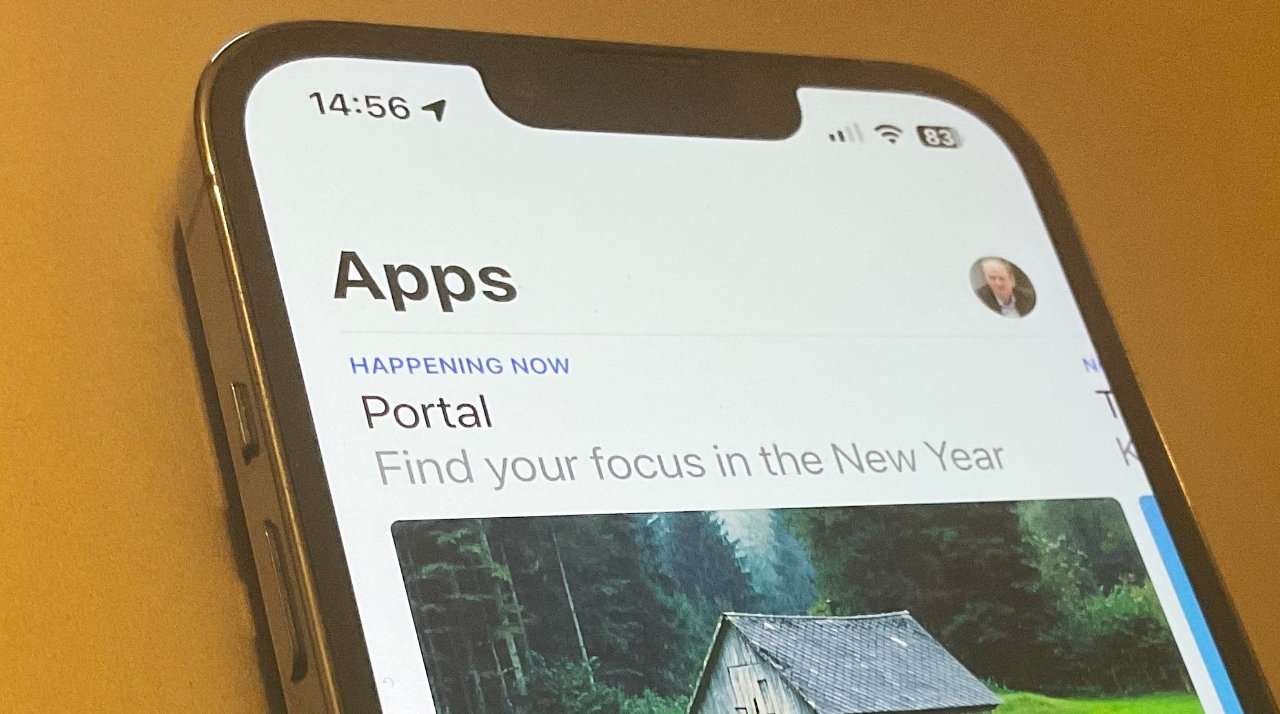
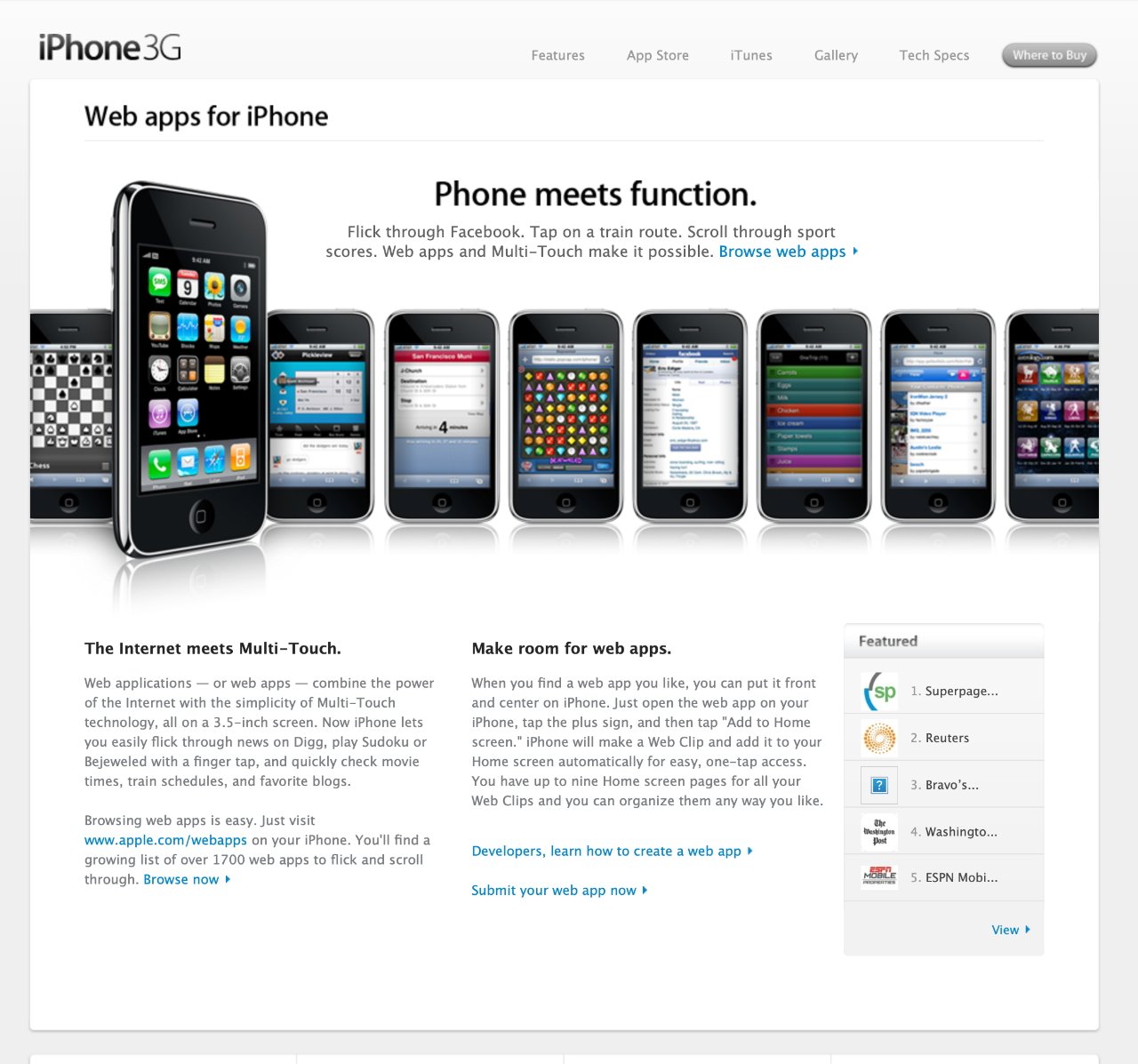
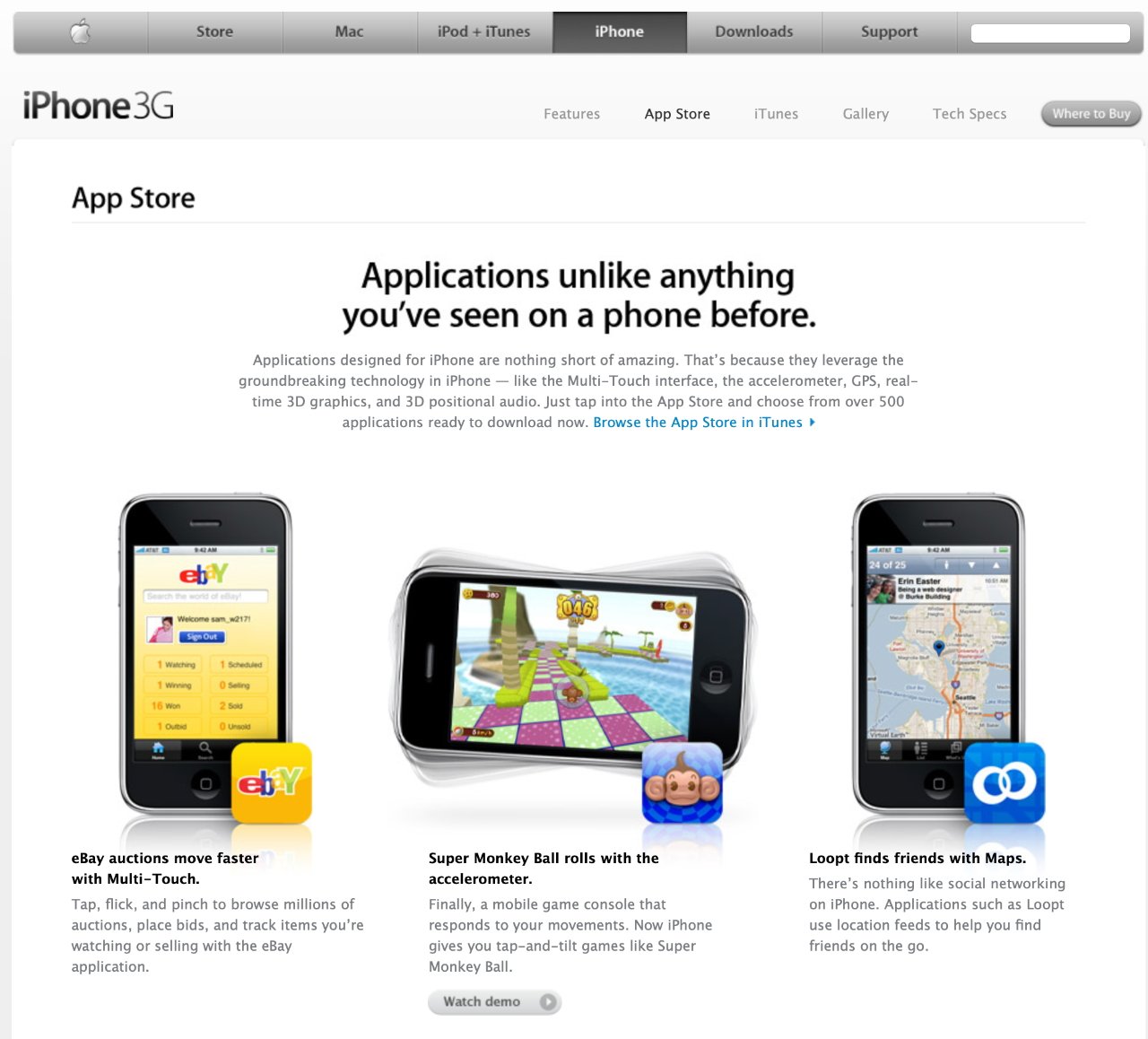
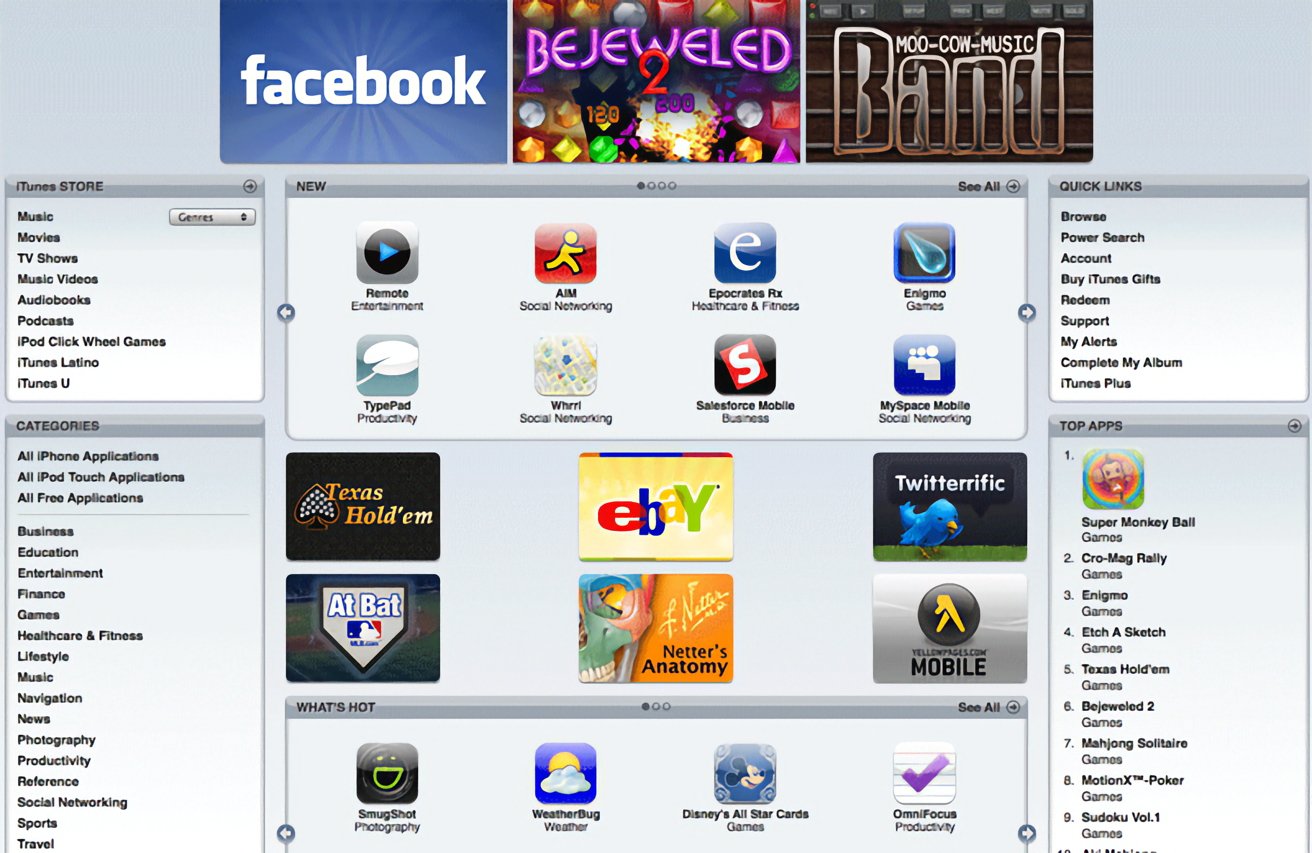
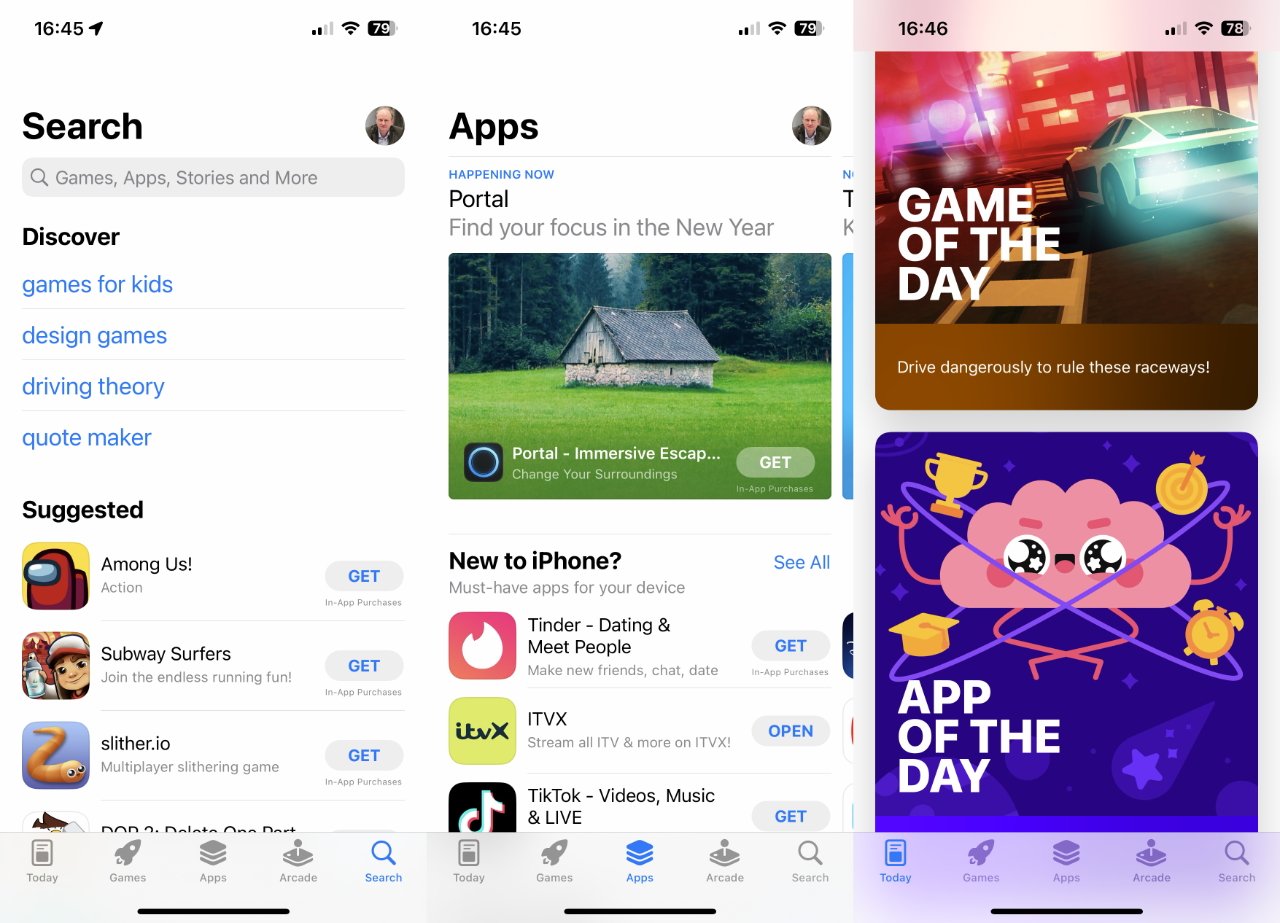







-m.jpg)






 Malcolm Owen
Malcolm Owen

 Andrew Orr
Andrew Orr



 Wesley Hilliard
Wesley Hilliard





-m.jpg)




3 Comments
The App Store is amazing.
This should be Required Reading for All government Legislators!!!
Maybe (not holding my breath) they could Get a Clue.
The current design of the App Store does not work well with more than 1 million apps available.
It was better when iTunes was available on the desktop featuring an app section and product categories were more prominent.
Now it is driven by search (which does not work well) and ads which are on top income for Apple.